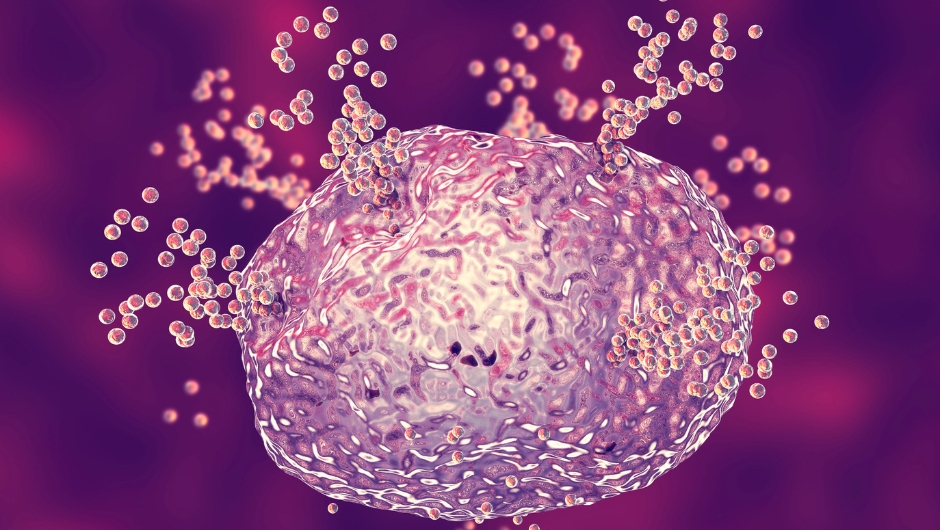How Histamine Overload Is Triggering Your Health Issues

If you often experience unexplained bloating, stubborn headaches, or sudden skin rashes, the culprit may be something you’ve never considered—histamine overload. While histamine is usually known for its role in allergies, an excess of this natural chemical can create a chain reaction that affects your gut, your brain, and even your skin.
What Is Histamine?
Histamine is a naturally occurring compound produced by your immune system. Its primary job is to defend you from potential threats such as bacteria, allergens, or injury. When you encounter an allergen—like pollen or dust—histamine is released to increase blood flow and call immune cells to the site of trouble.
Normally, your body breaks down excess histamine quickly. But when the balance tips and your system can’t clear it fast enough, histamine begins to accumulate, creating a state known as histamine overload or histamine intolerance.
Symptoms of Histamine Overload
Because histamine travels throughout the body, symptoms can show up in many different ways, often making diagnosis tricky. Common signs include:
- Digestive discomfort: bloating, cramps, diarrhea, or general gut irritation.
- Skin issues: unexplained rashes, hives, flushing, or itchiness.
- Neurological symptoms: chronic migraines or pressure headaches.
- Respiratory problems: wheezing, nasal congestion, or shortness of breath.
- Systemic fatigue: feeling exhausted despite adequate rest.
- Mood changes: anxiety, irritability, or sudden mood swings.
These symptoms may appear together or separately and can mimic allergies, food sensitivities, or even autoimmune flare-ups.
The DAO Enzyme Connection
Your body relies on an enzyme called Diamine Oxidase (DAO) to break down histamine, especially in the digestive tract. When DAO levels are low—whether due to genetics, nutrient deficiencies (like vitamin B6 or copper), certain medications, or gut inflammation—histamine remains in circulation far longer than it should.
Low DAO activity is one of the most common reasons for histamine overload. Supporting DAO function is often a key step in reducing symptoms.
Histamine’s Impact on the Gut Microbiome
Your gut is home to trillions of bacteria that help digest food, produce vitamins, and regulate immunity. Too much histamine can disrupt this delicate ecosystem by:
- Increasing gut inflammation, which irritates the intestinal lining.
- Worsening “leaky gut” syndrome, where tiny gaps in the gut wall allow toxins or undigested particles to enter the bloodstream.
- Triggering IBS-like symptoms, including alternating diarrhea and constipation.
Over time, these changes can lead to chronic digestive problems and nutrient malabsorption.
Histamine and Immune Function
Histamine is a key messenger in the immune system, but overload can cause it to overreact. Even in the absence of a real threat, high histamine levels can:
- Stimulate continuous immune responses.
- Promote chronic inflammation.
- Aggravate autoimmune conditions such as rheumatoid arthritis, Hashimoto’s thyroiditis, or lupus.
For people with an existing autoimmune disorder, histamine overload can mean more frequent or more severe flare-ups.
How to Tackle Histamine Overload at Its Source
The good news is that histamine intolerance can often be managed through diet and lifestyle adjustments. Here are evidence-based steps to get started:
1. Support DAO Activity
- DAO supplements: Specialized capsules can supply the enzyme your body lacks.
- Vitamin C and B6: Both nutrients help enhance DAO production and reduce histamine levels.
2. Reduce High-Histamine Foods
Limit or avoid:
- Aged cheeses and fermented foods (sauerkraut, kombucha)
- Processed or cured meats (salami, bacon)
- Alcohol, especially wine and beer
- Leftover fish or meats that have been stored for long periods
3. Restore Gut Health
- Choose probiotics such as Lactobacillus rhamnosus and Bifidobacterium strains that help balance histamine-producing bacteria.
- Eat a fiber-rich diet to nourish beneficial microbes.
4. Load Up on Antioxidants
Foods like blueberries, spinach, and kale combat oxidative stress, easing inflammation that can worsen histamine intolerance.
5. Consider Natural Antihistamines
Herbs and supplements such as quercetin, stinging nettle, or bromelain have mild antihistamine effects and may reduce allergic or inflammatory responses.
When to Seek Professional Help
If you suspect histamine overload, consult a qualified healthcare provider or registered dietitian before making major changes. Lab testing for DAO levels or a supervised low-histamine elimination diet can help pinpoint the cause and guide personalized treatment.